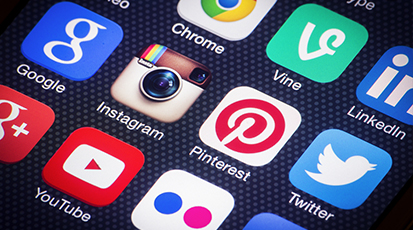 It was just one year ago that Proctor & Gamble’s Marc Pritchard presented the company’s get-tough plan to his fellow execs at the IAB’s annual leadership meeting in Florida.
It was just one year ago that Proctor & Gamble’s Marc Pritchard presented the company’s get-tough plan to his fellow execs at the IAB’s annual leadership meeting in Florida.
“The days of giving digital a pass are over,” he said at the time. “It’s time for the industry to grow up. It’s time for action,” he railed, challenging the Facebook/Google duopoly to clean up its act.
It was rather shocking at the time – and encouraging to hearing someone say what we’d all been thinking. But at this year’s event, the rhetoric seems more resigned that insistent.
“A year later, in the California desert, the criticisms Pritchard leveled are now almost old hat,” Lucia Moses explains in Digiday. “Digital media and marketing execs have entered the acceptance phase of duopoly control. Pritchard himself has said he’s seen enough progress on issues he raised to keep digital ad spending mostly the same.”
On a more conciliatory tone, Unilever CMO Keith Weeds “called for a more collaborative approach with the platforms,” Moses notes. Other talked about the downside of pulling their ads off YouTube when that offensive content scandal broke. (Unilever did not remove their ads at the time, for what it’s worth).
What a change from a year ago. At the time, it seemed that brands with clout were effectively calling for others to change. Now they seem to recognize they are in a pickle of their own making.
“The quandary for marketers is that they realize public trust in the social platforms and corporations is nose-diving, and their brand risks a negative rub-off of advertising on a platform that’s polluted with misinformation or offensive content,” Moses explains. “At the same time, they can’t replace the platforms’ audience and user data elsewhere.
“There’s a publisher sentiment that Facebook doesn’t owe them anything, that they need to look themselves in the mirror and accept that they helped create their digital business problem, having decided 20 years ago to give away their content for free online,” she continues. “Call it the backlash to the backlash.”
While they may have toned down their insistence that Facebook fix the fake news and ad fraud problems, they are also acknowledging there have been gains. Ad fraud has dropped, according to reports, and tech is helping to weed out the worst offending ads. And we’ll have to see what Oath – the new parent company of Yahoo and AOL – puts together in terms of a platform.
Overall, digital’s no good horrible rotten year seemed to mark a turning point for many in the magazine media, at least. We are seeing much talk of paid content and subscriber-based revenue, as they turn away from Facebook and re-evaluate their digital advertising.
Consumer brands have a different challenge, to be sure. Let’s just hope they don’t roll back to being overly compliant and reliant on a broken system.

February 19, 2018, 9:58 am
I am happy to see digital folks have woken up and can smell the roses. Print has it’s place and will continue being a key role in communication.